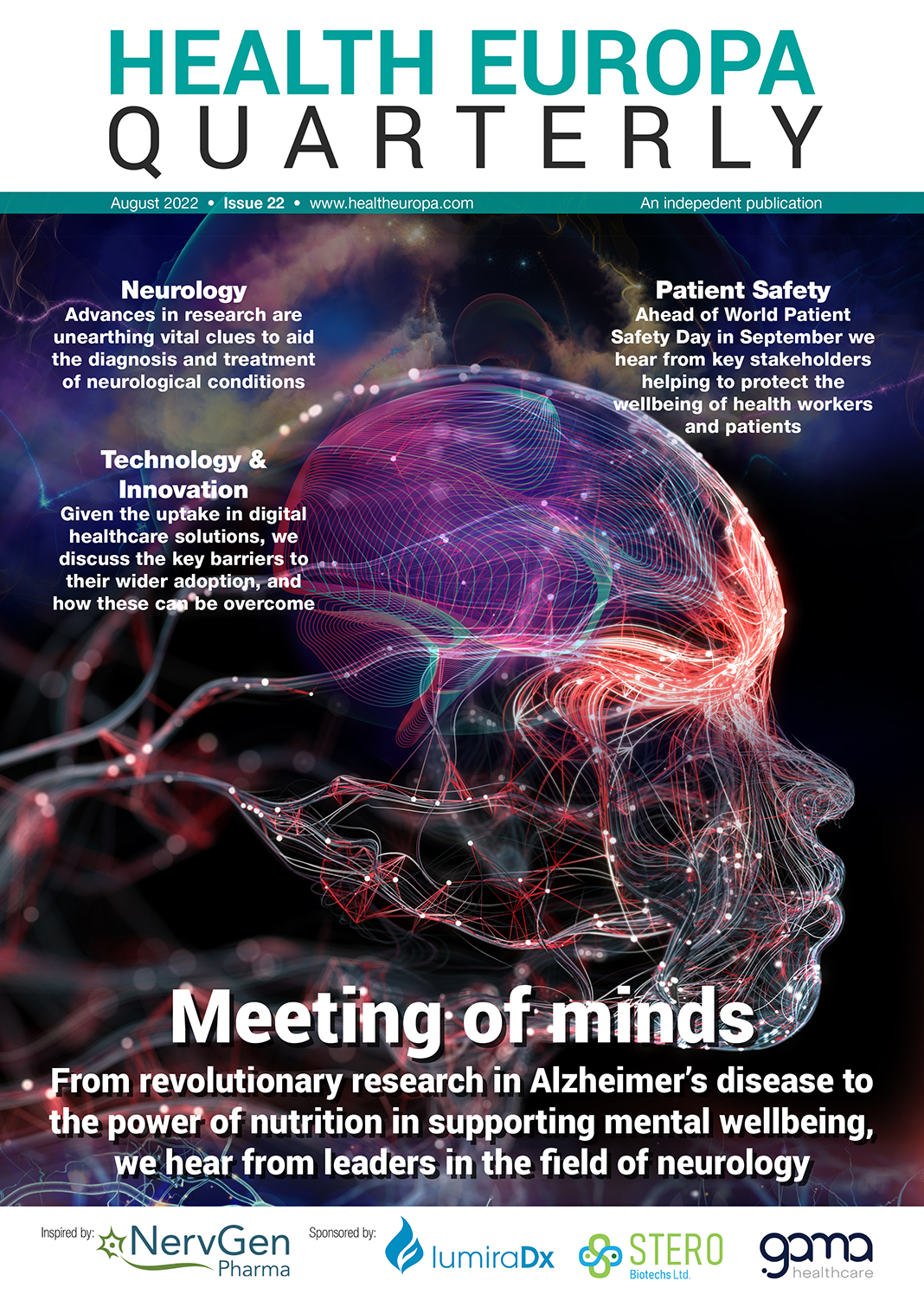Welcome to Health Europa Quarterly Issue 22, which features fascinating expert insights in the fields of public health, Alzheimer’s disease, antimicrobial resistance, women’s health, nutrition, health technology, medical cannabis, and much more.
The provision of care has been anything but simple in recent months. As healthcare workers endeavour to keep services afloat in the face of unprecedented challenges, key strategies must be implemented to help stem the tide of rising workforce capacity pressures. Nowhere has this been so acutely felt in recent months than by healthcare workers in Ukraine. As huge swathes of the population flee their homes, what will be the short and long-term impacts of the conflict on population health and indeed health systems in Ukraine and neighbouring countries? This question is explored at the start of this edition of Health Europa Quarterly by Professor of Public Health, Dr Andrew Lee. We also hear from the President and CEO of Project HOPE, Rabih Torbay, who shares a sobering account of his experience on the ground in Ukraine and visits to hospitals in the suburbs surrounding Kyiv.
Workforce shortages within healthcare inevitably pose a risk to patient safety. Ahead of next month’s fourth annual World Patient Safety Day, which raises awareness of key issues in healthcare and encourages cohesion among all key stakeholders, from patients to policymakers, we discuss decision-making around antimicrobial therapy with the Chair of the International Alliance of Patients’ Organizations Dr Neda Milevska-Kostova. Additionally, Peter Jackson, former chairman of the steering committee created to establish the UK’s translational R&D centre focused on antimicrobial resistance, and Michael Hodin, CEO of the Global Coalition on Ageing, discuss the UK’s novel ‘subscription’ model for antibiotic innovation and the key actions the country must take to secure its position as a global leader in the fight against drug resistance.
Tackling the urgent care crisis is equally high on the agenda. On page 32 Dr Richard Gilpin from the Doctors’ Association UK discusses the role of intermediate care in diffusing current pressures on hospitals and the importance of moving away from so-called ‘defensive medicine’ towards a culture that rewards appropriate clinical judgement. This theme is further explored in our Technology and Innovation section which looks at how healthcare technology can be suitably harnessed to improve care delivery and enhance the value of personalised healthcare.
A patient-centred approach is a valuable asset in the development of orphan medicines, particularly because research around many rare diseases is very much in its infancy. We spoke to the European Medicines Agency ahead of the EU’s revision of the regulatory framework governing orphan medicines to find out what challenges orphan drug developers often face and how the agency is supporting innovation and knowledge sharing in this field.
Our subsequent section on neurology explores a progressive study on the relationship between heart health and dementia and we also hear from Professor Jean-Charles Lambert from the French National Institute of Health and Medical Research who provides insights into the largest ever genome-wide association study for Alzheimer’s. Both offer vital data which could help inform therapeutic options and preventative measures for the condition in the future.
It is widely accepted that exercise and healthy eating are key preventative measures to reduce the risk of chronic disease. What we eat is not only integral to safeguarding our health but the health of our planet, too. In this edition of Health Europa Quarterly, Marco Springmann, Senior Researcher on Environmental Sustainability and Public Health at the University of Oxford, posits the necessity of implementing sustainable food systems that can offset further environmental damage as well as the rise of diet-related diseases. We also discuss the potential of nutrition as a therapy for mental health problems with author and Professor of Clinical Psychology, Julia Rucklidge. Policies that support healthy lifestyles and accessibility to healthy foods also form part of our interviews with Professor of Paediatric Nutrition, Mary Fewtrell, and the young campaigners of Bite Back 2030. Head over to our Healthy Lifestyle section on page 86 to find out more.
This edition of Health Europa Quarterly closes with our Women’s Health section where Endometriosis UK share the challenges surrounding this – often misunderstood – condition and we also hear from the International Osteoporosis Foundation about their exciting campaign with the European Space Agency which is raising awareness of the risk factors and preventative measures surrounding osteoporosis.
I hope you find the following articles as fascinating as I have in their collation, and should you have any suggestions for topics we should cover please let us know by emailing editor@healtheuropa.com
Lorna Rothery
Editor
Health Europa Quarterly

